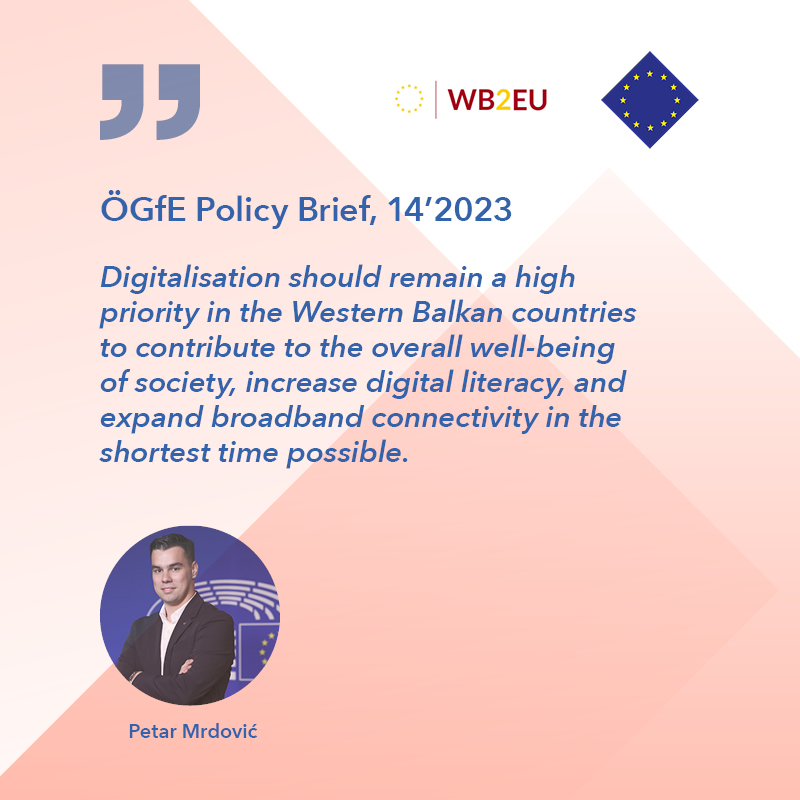The role of digitalisation in transforming Western Balkan societies, Petar Mrdović, ÖGfE Policy Brief, 14’2023
Digitalisation is playing an important role in our everyday lives. It has become embedded in every aspect of our lives. The digital transformation has reshaped the way we think, create, and exist as human beings. However, digital advancement is not equally distributed among all regions and countries across the world. One of these regions is also the Western Balkans (WB), where digitalisation is still a rather difficult and developing process. Although there are many international and regional players in the field of digitalisation, it remains a challenge. The WB countries have recently begun collaborating in the framework of initiatives, such as the Digital Summits, to work on digitalisation. The European Union also funds and implements projects that foster regional digitalisation. The EU is joined by the Organization for Security and Co-operation in Europe, the Regional Cooperation Council, Open Government Partnerships, and other actors that promote digitalisation. Regional cooperation and collective problem-solving are key to advancing digitalisation in the WB. The countries of the WB need to be convinced that digitisation must remain high on their agenda and be given their full attention. In addition, it is necessary to ensure equal and secure access to digital services for all without discrimination. The digital transition must work for the benefit of all and the prosperity of the countries that will successfully rival the members of the EU.
Policy Recommendations
Digitalisation should remain a high priority in the Western Balkan countries to contribute to the overall well-being of society, increase digital literacy, and expand broadband connectivity in the shortest time possible.
The European Union and the competent regional authorities need to monitor the digital transformation of the Western Balkans within the framework of their initiatives and the agreed timeline.
As many Western Balkan stakeholders as possible, from civil society to public institutions, should acknowledge that they must work together to raise the level of digitalisation and increase trust in digital services, thereby reducing the digital gap and facilitating access to services for all citizens.
Digitalisation will raise the security of the region to a higher level, making it more strategically and collectively connected.
Petar Mrdović Tweet

Photo: Gerd Altmann / Pixabay


